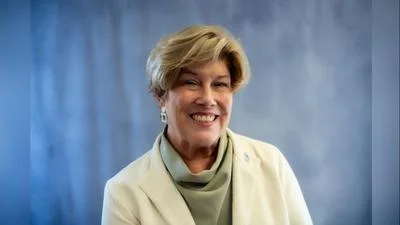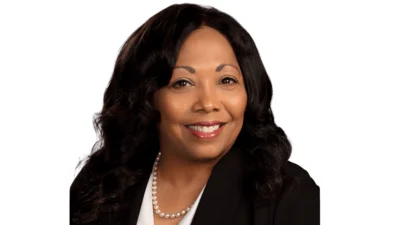James and Arkasia Cox along with five of their home-schooled children. | YouTube / PAACH
James and Arkasia Cox along with five of their home-schooled children. | YouTube / PAACH
The latest amendment to the Homeschool Act (HB2827), a bill sponsored by State Rep. Terra Costa Howard (D-Glen Ellyn), has sparked fierce opposition from homeschooling families and advocacy groups across the state.
Critics argue that the amended version of the bill significantly expands government oversight of homeschooling, placing increased burdens on families while infringing on their constitutional rights and privacy.
The debate surrounding HB2827 has highlighted deep divides in Illinois over parental rights and government involvement in education.
With over 42,000 witness slips filed in opposition, opponents note the bill places homeschool families under unwarranted suspicion and creates obstacles that could discourage home education entirely.
As the legislative process moves forward, homeschooling families like James Cox’s, president of the Peoria Area Association of Christian Homeschoolers (PAACH), are closely watching the outcome, hoping their voices will be heard.
Cox, who has been homeschooling his six children for over a decade, believes the amended HB2827 is a “power grab” that threatens parental rights.
"They have introduced a bill that, in my opinion, doesn't do anything but accuse homeschoolers of being abusive and basically tries to invade our homes and control what we're teaching and how we're doing it,” Cox told Peoria Standard.
Cox’s family has been homeschooling for 17 years, and he has seen firsthand the positive impact it has had on their children’s education and personal development.
He pointed to Section 905 2-3 of the bill, which states, “the educational development of every student serves the public purposes of the state,” as a key example of the bill’s overreach.
“The state should not be in control of raising children. Children do not belong to the state; they belong to parents,” Cox said. "It is our responsibility to raise them to be responsible, free citizens, not subjects of the state."
The bill's proponents argue it is necessary to address concerns over child abuse and truancy in homeschooling, but Cox is skeptical about its effectiveness.
"The government already has tools for addressing truancy and abuse, but they’re not using them efficiently. Adding more tools, especially when the ones they already have aren’t being used properly, is ridiculous,” he said. “It's like buying new tools every day without knowing how to use the ones you already have.”
A major concern for homeschooling parents like Cox is the broad language in the bill, which includes provisions on curricula and increased data collection from private schools. These provisions, critics argue, could lead to government overreach in controlling what children are taught at home.
"The amendment even mentions curriculum now, which the bill didn't specifically talk about before,” Cox said. “The language in the bill and the amendment are so vague that it leaves everything open to government abuse. They can hold the threat over homeschooling families—if you don’t comply, we’ll put you in jail, we’ll take away your kids, or we’ll fine you.”
Cox also expressed concern about the bill's potential impact on homeschooling co-ops, groups of families that come together for shared educational experiences. Under the proposed legislation, any co-op that exists could be reclassified as a private school, placing additional burdens on parents and organizations.
“If this passes, co-ops won’t just be homeschooling anymore. They’ll be considered private schools, and that’s a huge issue for everyone involved,” Cox said. "We’ve worked with hundreds of homeschooling families, and the thought of being redefined and under greater oversight is troubling."
Beyond these practical concerns, Cox highlighted a broader philosophical issue with the bill. He believes the underlying motivation is not just about protecting children but about exerting more control over the lives of parents.
"The push for this bill feels like part of a global mindset where the government wants total control. Anyone who keeps their children out of the public school system is seen as a threat to that control," he said. "The UN even has explicit goals to remove parental rights, and this bill feels like it’s in line with that broader agenda."
As opposition to the bill continues to mount, Cox remains committed to advocating for homeschooling families. He and his wife, Arkasia Cox, have met with several state legislators, including State Rep. Dennis Tipsword (R-Metamora), State Rep. Travis Weaver (R-Pekin) and State Sen. Chris Balkema (R-Channahon), who have voiced their opposition to HB2827.
"We’re optimistic, but also frustrated that our voices seem to be ignored," Cox said. "The witness slips are clear—42,000 people have opposed this bill. Yet, the government continues to push it through."
While Cox is prepared to comply with the law if the bill passes, he made it clear that he will resist the intrusive elements of HB2827.
"If this bill becomes law, I will do as little as possible within the law,” Cox said. “I’ll give as little information as I can and do my best to keep the government out of my home."
Will Estrada, senior counsel for the Homeschool Legal Defense Association (HSLDA), described the amended bill introduced on April 8 as “a completely new law” disguised as an amendment.
“It’s about the government deciding what’s best for children instead of parents,” he said. “Families across Illinois are united by their love for their children and their desire to provide the best education. The state shouldn’t come between them and that right.”
The legislative push is being led by the Coalition for Responsible Home Education, which Estrada criticized as “a pro-authoritarian, pro-government regulation organization” that is “on a mission to roll back homeschool freedoms.”





 Alerts Sign-up
Alerts Sign-up